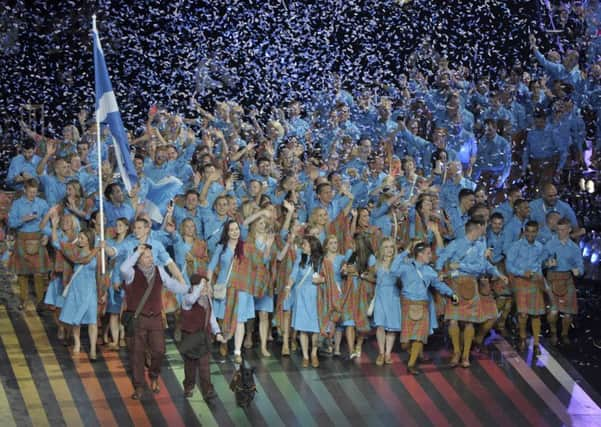Grant Jarvie: Don't let sport cuts squander key social asset


While this does not represent the total money available to sport, the total funding made available through the health and sport budget has in the aftermath of the Commonwealth Games been spiralling downwards.
While the Sportscotland response to the cut in funding focused on the impact upon elite athletes many other areas of Scottish life could be affected. All of this in a week when the Holyrood Health and Sport Committee addressed the barriers to involvement in sport and physical activity.
Advertisement
Hide AdAdvertisement
Hide AdIn 2016 the United Nations put sport on a statutory footing in recognition of the contribution it could make to the 2030 sustainable development goals. This is not a sterile debate about sport v physical activity or medals v participation, but a recognition that sport is a valuable social tool that contributes to development and as such merits statutory provision.
Sport in Scotland is not statutory and yet it contributes greatly to young people’s health and development. It involves them in positive activity, thereby helping them avoid trouble and fostering social cohesion. It encourages concentration, motivation and other learning skills that help in their education and their working and social lives.
Sport is not a magic social silver bullet, but if you want a healthier, more socially cohesive, socially mobile Scotland where the educational attainment gap has been narrowed, its effectiveness cannot be overlooked.
In Scotland sport used to be a well-trodden pathway out of poverty for a few. Funding cuts, not just to sport but also community policing and the loss of safe outdoor public spaces run the danger of sport becoming the preserve of the middle classes. Sporting boards are already failing to represent the community properly. To to be genuinely representative of Scottish communities the 2011 census data suggests that the Boards of Scottish Governing Bodies of Sport should be less white and ethnic minorities should make up about 8% of boards.
Those who make the political choices that people living in Scotland live with need to really understand sport much more. They must recognise that here is an activity that is primarily devolved and their choices have social consequences.
Many successful social enterprises, such as the Crags Community Sports Centre in Edinburgh or the Sportscotland-supported Drumchapel Community Sports Hub, make significant contributions. Yet social enterprises struggle to deliver scale, cuts to the sports budget could impact upon community sports hub quality and provision, and – unlike other countries – Scotland does not consider it important enough to provide statutory daily physical education.
At some point the state has to take more responsibility for delivering more sports funding, not because of sport but because of what it can help to deliver socially.
Advertisement
Hide AdAdvertisement
Hide AdOne of the potential dangers of Brexit is the further erosion of human rights legislation and the impact that could have on protection for para-athletes and disability in general. Sport can shed a real light on concerns over Brexit, but is it discussed at all in white papers and the volume of Brexit briefing papers?
Genuine sport for all means people cannot be excluded by cost, by lack of safe places, by lack of quality sustained pre-school, school and post-school experiences, or by lack of legislation that protects involvement in sport at all levels. Genuine sport for all is worth fighting for.
The social returns delivered by this primarily devolved activity are as much about the political choices made in Scotland as they are about funding cuts.
Sport requires greater agreed cross-party support, statutory protection and political understanding of what can be delivered.
Grant Jarvie is Chair of Sport at the University of Edinburgh